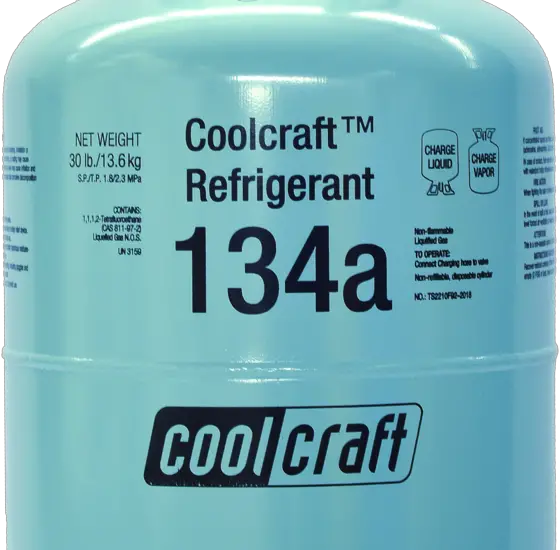Low refrigerant charge symptoms are like warning sirens, letting you know that your refrigerator isn’t happy. Here’s a crash course on why it matters and how to tell if you’re dealing with it.

Table of Contents
Understanding Refrigerant Charge in Refrigerators
Refrigerant charge is all about having just the right amount of refrigerant in your fridge. Not too much, not too little, just like Goldilocks’ porridge. When it’s at the right level, your refrigerator can do its job perfectly. However, if it drops, problems start cropping up. So, understanding how this works is the first step to maintaining a happy fridge.
Causes of Low Refrigerant Charge
Now, you might be wondering why the refrigerant would be low in the first place. Well, it’s usually down to a leak or sometimes, lack of proper maintenance. And yes, you guessed it right! Just like a slow tire puncture, a refrigerant leak can be a sneaky little problem, gradually affecting your refrigerator’s performance without you even realizing it. So, be on the lookout!
Recognizing Low Refrigerant Charge Symptoms in Your Refrigerator
Just like a pet, your refrigerator can’t exactly tell you when it’s feeling under the weather. But it sure does show symptoms. Recognizing these early signs of low refrigerant charge is like catching a cold before it turns into the flu. It saves you a whole lot of trouble in the long run.
Insufficient Cooling
Remember, the refrigerant’s job is to suck up heat from inside and release it outside. So, if there’s not enough of it, the fridge struggles to keep things cool. Ever opened your refrigerator to find the milk warmer than you’d like? That’s a sign right there!
Longer Running Times
When the refrigerant is low, your refrigerator has to work harder and longer to maintain the right temperature. It’s like running a marathon with one leg; it’s going to take you longer to reach the finish line. So, if your fridge seems to be working overtime, you might have a refrigerant issue on your hands.
Ice Build-up
Strange but true, a low refrigerant charge can actually lead to excessive ice buildup. It’s kind of like when your car’s radiator leaks, and the engine overheats. The evaporator coil can get too cold and freeze the humid air inside the fridge, leading to ice. Notice a mini Ice Age in your fridge? Might be a low refrigerant charge.
Increased Energy Consumption
And guess what? When your fridge runs longer to keep things cool, it uses more energy. It’s like driving a car with a flat tire; you burn more fuel. So, if your electricity bill is making you sweat, your fridge might be the culprit.
Abnormal Noise
Lastly, if your refrigerator is making strange noises, kind of like a cat in a bad mood, it could be due to a low refrigerant charge. These noises often come from the compressor working harder than it should. So, if your fridge is singing the blues, it’s time to check the refrigerant level.
Check out these other related articles…
R717 Refrigerant: Your Comprehensive Guide
Ammonia Refrigerant: A Detailed Guide
Water Refrigerant: A Comprehensive Guide
CO2 Refrigerant: Your Ultimate Guide
Refrigerant HFC 134a: A Detailed Exploration
5 Overcharged Refrigerant Symptoms: A Detailed Guide
How to Fix an Overcharged Refrigeration System: 3 Easy Steps
Responding to Low Refrigerant Charge Symptoms
Alright, so you’ve spotted the signs and suspect low refrigerant charge. What next? Time to take action. Responding promptly and properly to these symptoms can mean the difference between a quick fix and a major overhaul. Just remember, this is a job for professionals, not a DIY project.
Verifying the Low Refrigerant Charge Symptoms
If you’ve noticed any of these signs, the next step is to verify the symptoms. You can’t always diagnose a low refrigerant charge by symptoms alone. It’s like trying to diagnose a cough without a doctor’s visit; you could be wrong. Best to call in a professional to make sure.
Seeking Professional Help
Remember, dealing with refrigerants is not a DIY job. It’s not like changing a light bulb. You need specialized tools and knowledge to handle it safely. Don’t risk it. Call a professional. They’ll be able to diagnose the problem, fix any leaks, and recharge the refrigerant safely.
Preventing Low Refrigerant Charge Issues
Now, we’ve all heard that prevention is better than cure. And it’s no different when it comes to your refrigerator. Taking measures to prevent low refrigerant charge issues not only keeps your fridge running smoothly but also saves you from headaches down the line. It’s like getting an oil change to prevent your car from breaking down on the highway. Smart, right?
Regular Maintenance
Now, we bet you’re wondering how to avoid all this trouble in the first place. The answer is regular maintenance. Just like you’d service your car to keep it running smoothly, regular maintenance on your fridge can help prevent issues with the refrigerant. Check for leaks, keep the coils clean, and you’re good to go!
Early Detection
The early bird catches the worm, and the same is true for detecting low refrigerant charge symptoms. Keep an eye (and ear) on your fridge. Notice anything unusual? It’s best to deal with it early. It could save you a lot of hassle (and melted ice cream) down the road.